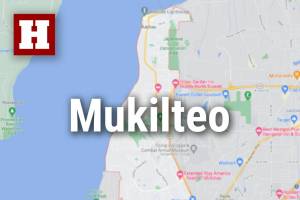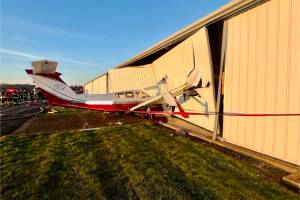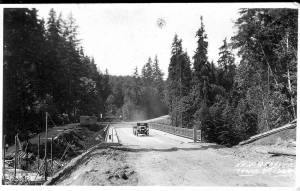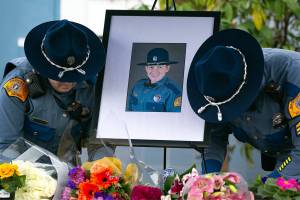Official: Chicago legacy of voter fraud has been cleaned up
Published 1:30 am Wednesday, October 19, 2016
By Rick Pearson, Chicago Tribune
CHICAGO — Claims from Republican presidential candidate Donald Trump that voting is rigged to help Democratic rival Hillary Clinton on Nov. 8 have served to dredge up Chicago’s controversial history of vote stuffing, ballot boxes floating in the river and dead people voting.
But state and city elections officials contend the massive voting fraud of the past is history, citing new technology and changes in voting laws have made the potential for fraud a fraction of what existed in the past. They say the concern now is voter intimidation techniques.
“We don’t claim perfection. We know we’re trying to live down the history of this agency from our parents’ and our grandparents’ generations,” said Jim Allen, spokesman for the Chicago Board of Election Commissioners.
Appearing on Tuesday in western Colorado, Trump raised the issue, responding to recent media reports that voter fraud is not as rampant of a problem as he has said.
“Take a look at St. Louis. Take a look at Philadelphia. Take a look at Chicago,” Trump said. “Look, look, if nothing else, people are going to be watching on Nov. 8. Watch Philadelphia. Watch St. Louis. Watch Chicago, watch Chicago. Watch so many other places.”
Those remarks came after prominent Trump surrogate Rudy Giuliani, the former New York mayor, fanned the fraud flames earlier this week.
“There are a few places, not many in the swing states, there are a few places where they’ve been notorious for stealing votes: Pennsylvania, Chicago. There have been places where a lot of cheating has gone on over the years,” Giuliani, a former federal prosecutor, told CNN.
“If you want me to tell me that I think the election in Philadelphia and Chicago is going to be fair, I would have to be a moron to say that. I mean, I would have to dislearn everything I learned in 40 years of being a prosecutor,” he said.
Giuliani cited the 1982 Illinois general election contest that pitted Republican Gov. James R. Thompson seeking re-election against former Democratic U.S. Sen. Adlai E. Stevenson III — a race Thompson won by 5,074 votes, the slimmest vote total in statewide history.
A federal grand jury investigation, prompted in part by Chicago Tribune reporting, led to 62 indictments and 58 convictions, many involving precinct captains and election officials. The grand jury concluded that 100,000 fraudulent votes had been cast in the city and that the city’s patronage system was a driving force in spurring the illegality.
Authorities found massive fraud involving vote buying and ballots cast by others in the names of registered voters. In one case, a ballot punched for the Democratic slate had been tabulated 198 times.
In 1987, a canvass of voter records by the Chicago elections board projected up to 52,000 people improperly cast ballots in then-Mayor Harold Washington’s Democratic primary win over former Mayor Jane Byrne. A citizens’ group said it had evidence of thousands of additional illegal votes using similar methods.
Decades before that, stories of election fraud were predominant about then-Mayor Richard J. Daley and the Chicago vote in the presidential election of Democrat John F. Kennedy in 1960.
More recently, critics contended then-Democratic Gov. Pat Quinn’s Neighborhood Recovery Initiative that dashed out money to anti-violence programs was a disguised political slush fund to try to influence South Side and south suburban voters ahead of the 2010 election. Quinn ended the initiative under criticism, and the state auditor general found it was hastily put together and lacked proper checks and balances.
“I can’t sit here and tell you that they don’t cheat,” Giuliani said of Democrats on CNN. “And I know because they control the polling places in these areas. There are no Republicans. That is very hard to get people there who will challenge votes. So what they do is they leave dead people on the rolls and then they pay people to vote those dead people four, five, six, seven, eight, nine times.”
But Allen, the Chicago elections spokesman, said much has changed when it comes to actual voter fraud.
“To give some context, in the last 10 years we’ve had 10 referrals of suspicious activity to the state’s attorney’s office and at the same time we’ve had 9 million ballots cast,” Allen said. One referral led to the convictions of two men on misdemeanor charges of manipulating absentee ballots in a 50th Ward aldermanic contest in 2007.
Allen said the city board’s use of electronic poll books at polling places blocks “the prospect of double voting,” and the electronic connections between early voting sites make it “impossible” to vote more than once.
In addition, Allen cites the work of the Illinois voter registration system and database with the State Board of Elections that tracks each of the state’s 109 election authorities seeking duplicate registrations and checking on death records.
“The assumption that just because there may be some outdated voter records on the rolls is immediately followed by voter impersonation fraud — there’s no evidence of it happening in the United States on any kind of significant measure,” Allen said.
Ken Menzel, general counsel for the state elections board, said the state database of registered voters is frequently refreshed with new and updated registrations as well as death records so “that dead voting in Chicago (is) kind of malarkey.”
Menzel also said the decentralized nature of balloting in Illinois, coupled with different voting systems in use by local election officials and no centralized internet connection among election authorities, makes wholesale election fraud to be considered “far-fetched” by election experts.
“We have a system with a lot of different observers and a lot of checks and balances and we’re confident we’ll have a solid and reliable result for our election,” he said.
Allen said voters are encouraged to call the city elections board for investigation or contact county, state or federal prosecutors if they have an allegation of something that looks unusual. But, he said, the largest complaints involve electioneering, where campaigning takes place too close to a polling place.
Trump has called for more vigilance from his supporters at local polling places. Allen said concern exists “that there’s talk of vigilantism in questioning voters at the door” of polling sites.
“We strongly encourage any voter that encounters that anywhere in the United States to contact their local police department and/or election authority but also contact the U.S. Justice Department. Voter intimidation is a violation of federal law,” Allen said.
Even Giuliani acknowledged that cheating isn’t a concern of the Trump campaign in Illinois, with its traditional Democratic leanings in presidential contests and Clinton having been born in Chicago and raised in suburban Park Ridge.
“Look, if she wins Illinois by 8 percent or he wins Illinois by 8 percent, then that cheating isn’t going to make any difference,” Giuliani said.
“But we do cheat. We have people who cheat in elections. I’ve found very few situations where Republicans cheat. They don’t control the inner cities the way Democrats do. Maybe if Republicans controlled the inner cities, they’d do as much cheating as Democrats,” he said.
Chicago aldermen got into the act Tuesday, alluding to the city’s notorious history of deceased voters casting ballots while poking fun at the voter fraud claims.
Ald. Raymond Lopez, 15th, mentioned during the budget hearing for the city Board of Election Commissioners that there had been reports of “some seriously concerning things going on in Chicago.”
“So I would just like to know if we can have an update on what are the (voter) registration numbers at both Graceland and Rosehill cemeteries as of right now,” Lopez asked election commissioners.
“Does the Oak Woods Cemetery have seven registered voters?” called out Ald. Leslie Hairston, 5th. “If you can add that to the mix, I’d appreciate it.”
“If we could add Oak Woods as well just to see what our registration numbers are there,” Lopez continued as election officials laughed along. “As well as, supposedly, not only the budgets for bribes for votes, which was reported as well, our cemetery registrations, our absentee ballot round-ups, as well as any other miscellaneous voter fraud funds that you have available to you, we’d like to have all that information.”




